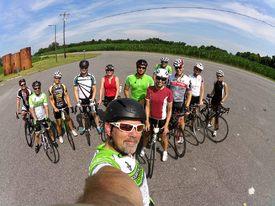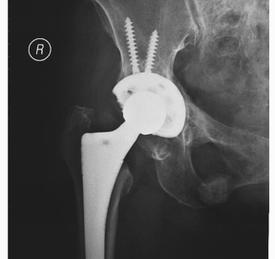We are pleased to announce that on March 4, 2025, an updated Rich Text Editor will be introduced in the MyFitnessPal Community. To learn more about the upcoming changes, please click here. We look forward to sharing this new feature with you!
Can you drink too much water?

jenlob
Posts: 21 Member
It seems when I watch what I eat I am thirsty a lot and drink more water. I have a desk job and sit a fair amount of the day which makes it easy for me to drink a lot of water/fluids. I was wondering if it's bad for me to drink a lot water. I know they recommend atleast 8 glasses a day but I am sure that I actually consume more like 12-14, maybe more. A friend of mine was concerned that I may have a sugar problem/diabetes but I have been checked and there is no issue.
0
Replies
-
I was thinking about this earlier. I already drank 50 ounces, and on my second 50 ounce bottle.0
-
Can You Really Drink Too Much Water?
In a word, yes. Drinking too much water can lead to a condition known as water intoxication and to a related problem resulting from the dilution of sodium in the body, hyponatremia. Water intoxication is most commonly seen in infants under six months of age and sometimes in athletes. A baby can get water intoxication as a result of drinking several bottles of water a day or from drinking infant formula that has been diluted too much. Athletes can also suffer from water intoxication. Athletes sweat heavily, losing both water and electrolytes. Water intoxication and hyponatremia result when a dehydrated person drinks too much water without the accompanying electrolytes.
What Happens During Water Intoxication?
When too much water enters the body's cells, the tissues swell with the excess fluid. Your cells maintain a specific concentration gradient, so excess water outside the cells (the serum) draws sodium from within the cells out into the serum in an attempt to re-establish the necessary concentration. As more water accumulates, the serum sodium concentration drops -- a condition known as hyponatremia. The other way cells try to regain the electrolyte balance is for water outside the cells to rush into the cells via osmosis. The movement of water across a semipermeable membrane from higher to lower concentration is called osmosis. Although electrolytes are more concentrated inside the cells than outside, the water outside the cells is 'more concentrated' or 'less dilute' since it contains fewer electrolytes. Both electrolytes and water move across the cell membrane in an effort to balance concentration. Theoretically, cells could swell to the point of bursting.
From the cell's point of view, water intoxication produces the same effects as would result from drowning in fresh water. Electrolyte imbalance and tissue swelling can cause an irregular heartbeat, allow fluid to enter the lungs, and may cause fluttering eyelids. Swelling puts pressure on the brain and nerves, which can cause behaviors resembling alcohol intoxication. Swelling of brain tissues can cause seizures, coma and ultimately death unless water intake is restricted and a hypertonic saline (salt) solution is administered. If treatment is given before tissue swelling causes too much cellular damage, then a complete recovery can be expected within a few days.
It's Not How Much You Drink, It's How Fast You Drink It!
The kidneys of a healthy adult can process fifteen liters of water a day! You are unlikely to suffer from water intoxication, even if you drink a lot of water, as long as you drink over time as opposed to intaking an enormous volume at one time. As a general guideline, most adults need about three quarts of fluid each day. Much of that water comes from food, so 8-12 eight ounce glasses a day is a common recommended intake. You may need more water if the weather is very warm or very dry, if you are exercising, or if you are taking certain medications. The bottom line is this: it's possible to drink too much water, but unless you are running a marathon or an infant, water intoxication is a very uncommon condition.0 -
the LAST paragraph is MOST important to your question!!!!0
-
To answer your question, yes you can. If you drink too much water you dilute your sodium content.
However, you are not drinking too much water if you drink 12-14 glasses a day. Its more of a don't drink too much too fast... if you spread it out through the day your kidneys will be able to process it regularly and you'll be fine. No worries.0 -
It is possible but unless you're an infant or a marathon runner you probably don't have to worry about it.
Here's an article for you to read: http://chemistry.about.com/cs/5/f/blwaterintox.htm0 -
I am not an expert, but I too drink a great deal of water. sometimes 4 or 5 liters during the workday. The only problem I have encountered is washing electrolytes out of my system, making workouts excruciatingly difficult. Basically, you need salt to function, and drinking too much water dilutes it. I take electrolyte supplements and have no troubles.
Again, this is my own experience. Someone with medical knowledge may think differently, but my doctor shows no concern about my water intake, and he's a kidney specialist.0 -
I drink 100 oz at work every day and more when I get home at night. We would have to drink so much, so fast in order for it to hurt us... as muitobem posted.0
-
You would most likely need to exceed a gallon of water intake a day for this to be harmful.0
-
Wow that was a lot info but thanks. I think I'm okay. I'm not a marathon runner or anything and I consume my water through out the day.0
-
There's only a chance of water intoxication if you drink 3 litres or more in one go.
Drinking 15 litres in a day won't cause it - you'll just need to pee a lot.
If you are urinating more than once an hour I'd say cut back a bit on the water. I tend to sip 500-700ml of water every two hours and pee about every two hours.0 -
My nutritionist used to tell me that yes, you can drink too much water. She always told me that too much water can "wash away" your nutrients. However, I average anywhere from 12-20 cups a day and that seems to be okay -she didn't think it was an issue.0
-
Well, you're using the right stimulus to drink water (thirst) but the amount of water you're drinking sounds high.
You can cause problems by drinking a lot of water quickly (a few runners have killed themselves that way) but you're drinking it over the course of the day so that won't be an issue.
You might want to have a conversation with your doctor. Extreme thirst can be a sign of diabetes and that's something that can be checked very quickly with a urine test.
Insofar as drinking 8 cups a day, the only reason I've been able to find for that recommendation is because it can suppress the appetite so, while obese people are learning to control their cravings, drinking water can help. Other than that, I've not been able to find a medical reason to drink that much water.
This link will, perhaps, clear up some of the woo about consuming so much water.
http://ajpregu.physiology.org/content/283/5/R993.full
What I like about the article is that it deals with the idea of drink water, well like a scientist does. Which makes sense since the author is a medical doctor (who happens to have written a text book on how the kidneys function) and he's writing about the results of a scientific study. There are 100 footnotes in his article — funny, none of them link to any postings here on MFP… ;-)0 -
"wash away" nutrients?
Oy.0 -
Our health/fitess coordinator for the town I work in says divide your body weight by 2 to get your recommended amount. I usually drink somewhere b/w 120 and 140 oz. w/ no problems ...once I adjusted I don't pee near as much as when I started drinking that amount of water0
This discussion has been closed.
Categories
- All Categories
- 1.4M Health, Wellness and Goals
- 394.3K Introduce Yourself
- 44K Getting Started
- 260.4K Health and Weight Loss
- 176.1K Food and Nutrition
- 47.5K Recipes
- 232.7K Fitness and Exercise
- 440 Sleep, Mindfulness and Overall Wellness
- 6.5K Goal: Maintaining Weight
- 8.6K Goal: Gaining Weight and Body Building
- 153.1K Motivation and Support
- 8.1K Challenges
- 1.3K Debate Club
- 96.4K Chit-Chat
- 2.5K Fun and Games
- 4K MyFitnessPal Information
- 16 News and Announcements
- 1.2K Feature Suggestions and Ideas
- 2.7K MyFitnessPal Tech Support Questions








